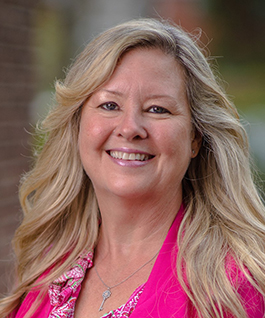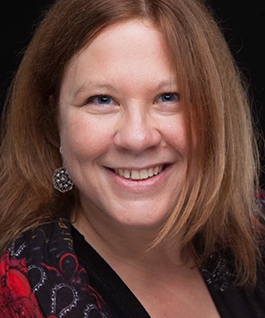Provincial Team Lead

Jill Hanley, McGill University
Jill Hanley is an Associate Professor in the School of Social Work and Scientific Director of the Sherpa Research Institute on Migration, Health and Social Services. Jill’s work focuses on closing the gaps between policies and practice concerning the social rights of migrant populations. Jill will lead the ICOI Social Inclusion Research Stream.
Community Partners

Annie Pontbriand, Sherpa
Annie Pontbriand has been coordinating the research activities of the Sherpa Research Institute on Migration, Health and Social Services since 2015. Annie has more than 18 years of experience in coordinating various research projects, particularly in connection with the organization of Aboriginal youth mental health services and intervention in the transition to adulthood.

Nadia Hébert, Action Centre-Ville (ACV)
Nadia Hébert graduated from Cégep du Vieux Montréal in social work techniques. She has been at Action Center-Ville since the end of her studies in 2008. She began as a community worker and was responsible for a project to integrate the Chinese community living at Habitations Jeanne-Mance. Action Center-Ville has a good number of members with different cultural origins; 49% of recipients are from a country other than Canada. The organization works to integrate different cultures with the help of specific activities during the year.
Nadia Hébert est diplômée du Cégep du Vieux Montréal en techniques de travail social. Elle est à Action Centre-Ville depuis la fin de ses études, soit depuis 2008. Elle a commencé comme intervenante de milieu et a été responsable d’un projet d’intégration de la communauté chinoise résidant aux Habitations Jeanne-Mance. Action Centre-Ville compte bon nombre de membres ayant différentes origines culturelles ; 49% des bénéficiaires proviennent d’un pays autre que le Canada. L’organisme fait un travail d’intégration des différentes cultures avec l’aide d’activités spécifiques durant l’année.

Sheri McLeod, NDG Senior Citizens’ Council (NDGSCC)
Sheri McLeod is the Executive Director for the NDG Senior Citizens’ Council, located in the west-end of Montreal. Having worked in various capacities in the community sector as both a professional and volunteer, she has extensive experience in policy analysis, program development and change management as well as strategic planning in the notfor- profit sector. With a degree in social work from McGill University, Sheri aims to influence policy at the municipal, provincial and federal levels as well as within the local community.
Academic Partners

Ilyan Ferrer, University of Carleton
Assistant Professor in the Faculty of Social Work. His research focuses on the intersections of aging, im/migration, labour, and care experiences of racialized communities in Canada. Ilyan’s work incorporates intersectionality, oral history, and antioppressive social work theory and practice.

Marie-Emmanuelle Laquerre, Université du Québec a Montreal
Marie-Emmanuelle Laquerre is a Professor in the Department of Social and Public Communication at the University of Quebec at Montreal. She teaches interpersonal communication and intervention among individuals and small groups. Marie-Emmanuelle’s research is in social gerontology and focuses on the humanization of health care and services for older immigrants, as well as on professional relationships in contexts of ethnocultural diversity.

Maryse Soulières, Universite du Quebec a Montreal
Maryse Soulières is an adjunct professor at the School of Social Work at the University of Montreal. Her research focuses on the elderly in vulnerable situations including those experiencing major neurocognitive disorders, end of life, and housing and long-term care concerns. She was part of the team that established the Elder Abuse Help Line, a provincial telephone intervention line against mistreatment towards the elderly. She previously worked in various senior housing settings, as beneficiary attendant, social worker, living environment advisor and service quality and complaints commissioner.
Maryse Soulières est professeure adjointe à l’École de travail social de l’Université de Montréal. Ses intérêts de recherche concernent les personnes âgées en situation de vulnérabilité, notamment en lien avec les troubles neurocognitifs majeurs, la fin de vie et les milieux d’hébergement et de soins de longue durée. Elle a fait partie de l’équipe qui a mis sur pieds la Ligne Aide Abus Aînés, ligne d’intervention téléphonique provinciale contre la maltraitance envers les aînés. Elle a auparavant travaillé dans divers milieux d’hébergement pour aînés, à
titre de préposée aux bénéficiaires, travailleuse sociale, conseillère en milieu de vie et commissaire aux plaintes et à la qualité des services.

Salima Massoui, Université du Québec a Montreal
Salima Massoui is an associate professor at the School of Social Work at the University of Quebec in Montreal. Her fields of interest relate to immigration, interethnic relations, gender relations, as well as domestic violence and homicide in Quebec and North Africa. More recently, she has broadened her research to the migratory journeys of refugees and asylum seekers newly settled in Quebec, and more particularly to their journey of access to health care and social services. Finally, Salima is a member of several university research groups such as Trajetvi and the Canadian Domestic Homicide Prevention Initiative with Vulnerable Populations.
Salima Massoui est professeure associée à l’École de travail social de l’Université du Québec à Montréal. Ses champs d’intérêt se rapportent à l’immigration, aux relations interethniques, aux rapports de genre, de même qu’à la violence et à l’homicide conjugaux au Québec comme en Afrique du Nord. Plus récemment, elle a élargi ses recherches aux parcours migratoires des personnes réfugiées et demandeuses d’asile nouvellement installées au Québec, et plus particulièrement à leur parcours d’accès aux soins de santé et de services sociaux. Salima est enfin membre de plusieurs groupes de recherche universitaire tels que Trajetvi et la Canadian Domestic Homicide Prevention Initiative with Vulnerable Populations.

Sonia Ben Soltane, University of Ottawa
Sonia Ben Soltane is Professor of Social Work in the Faculty of Social Sciences. Her work explores female immigration with a feminist intersectional posture. She also has an extensive research experience in relation to immigration in Canada and in France.
